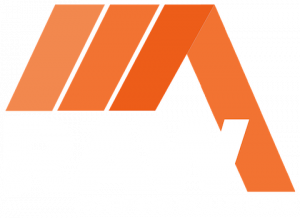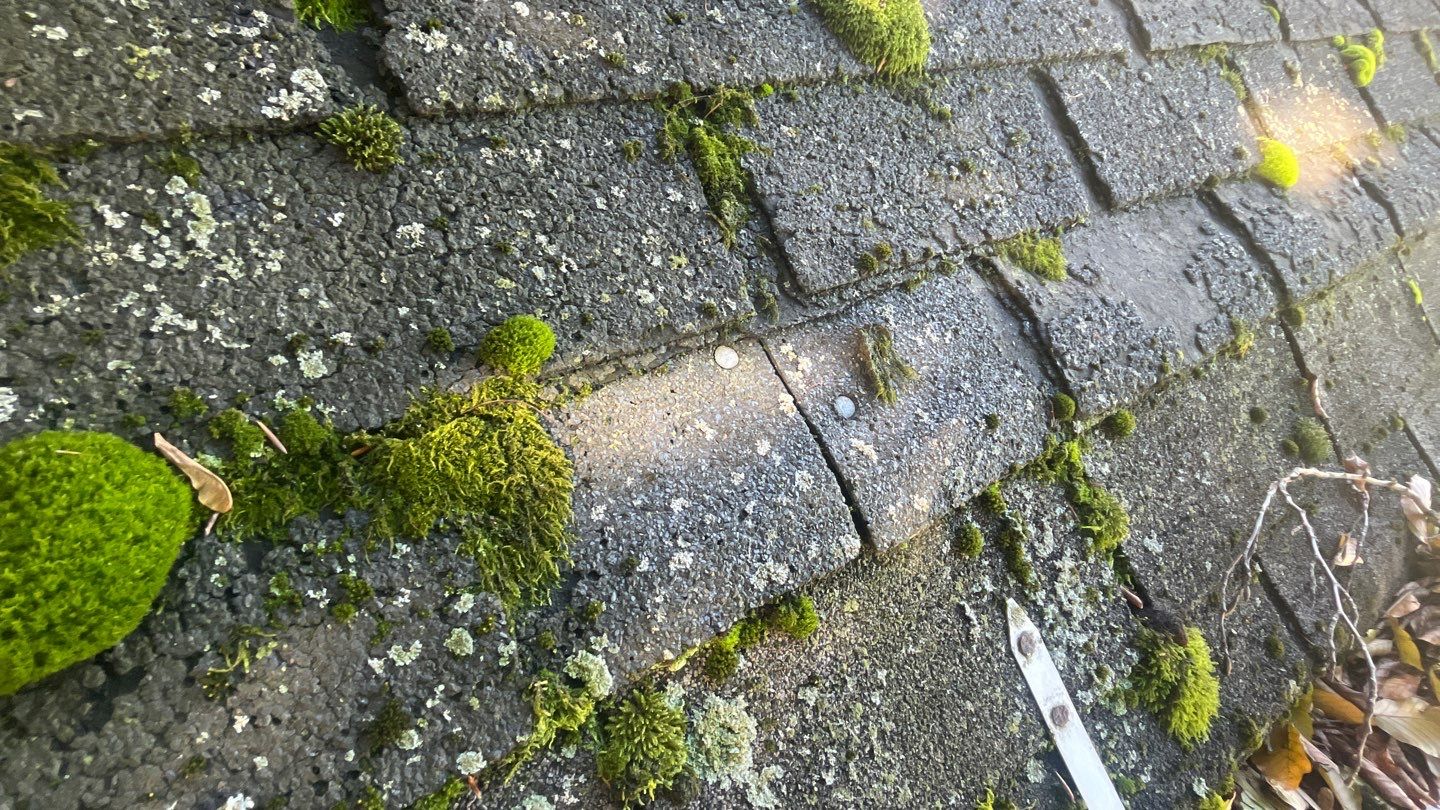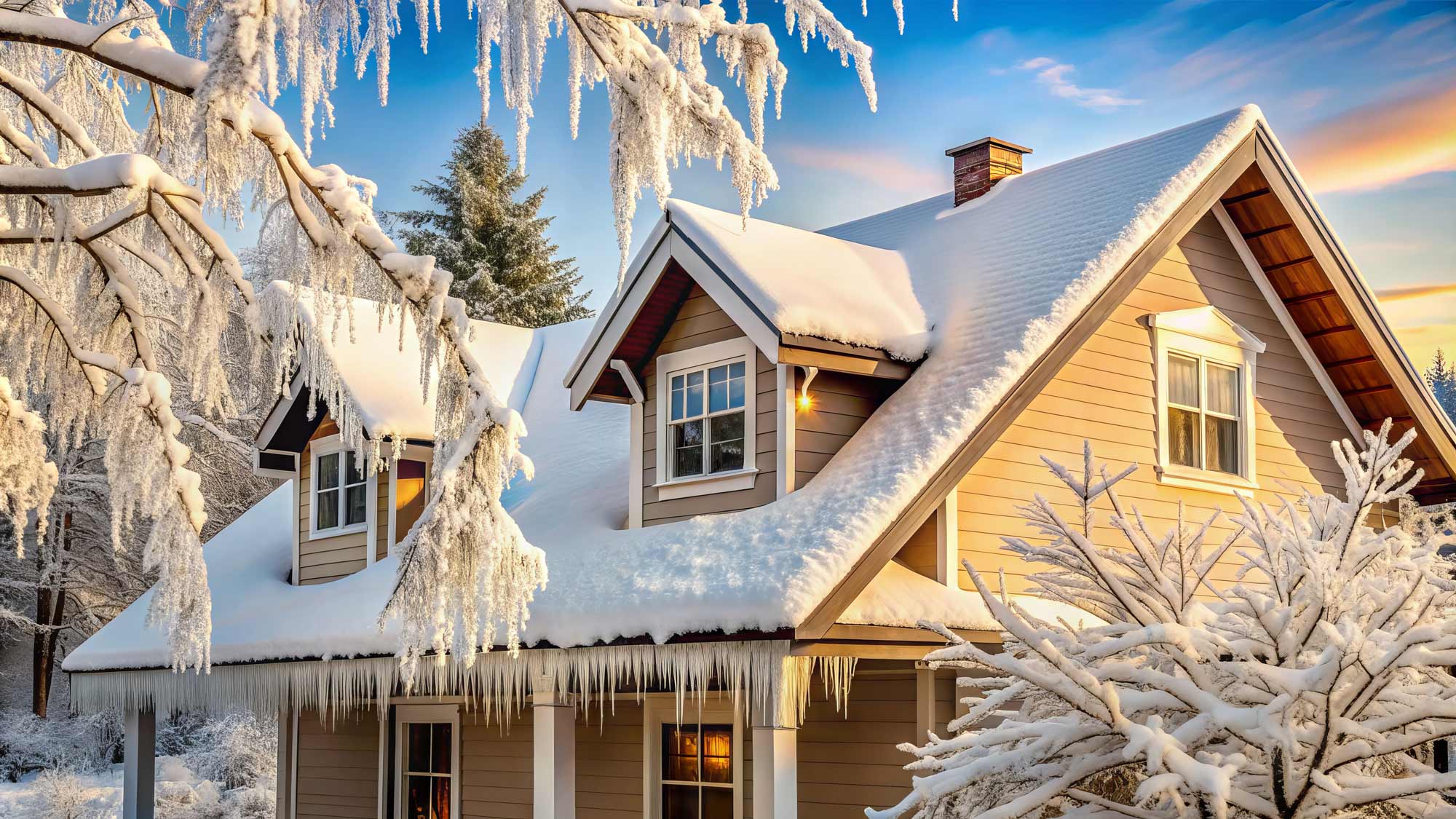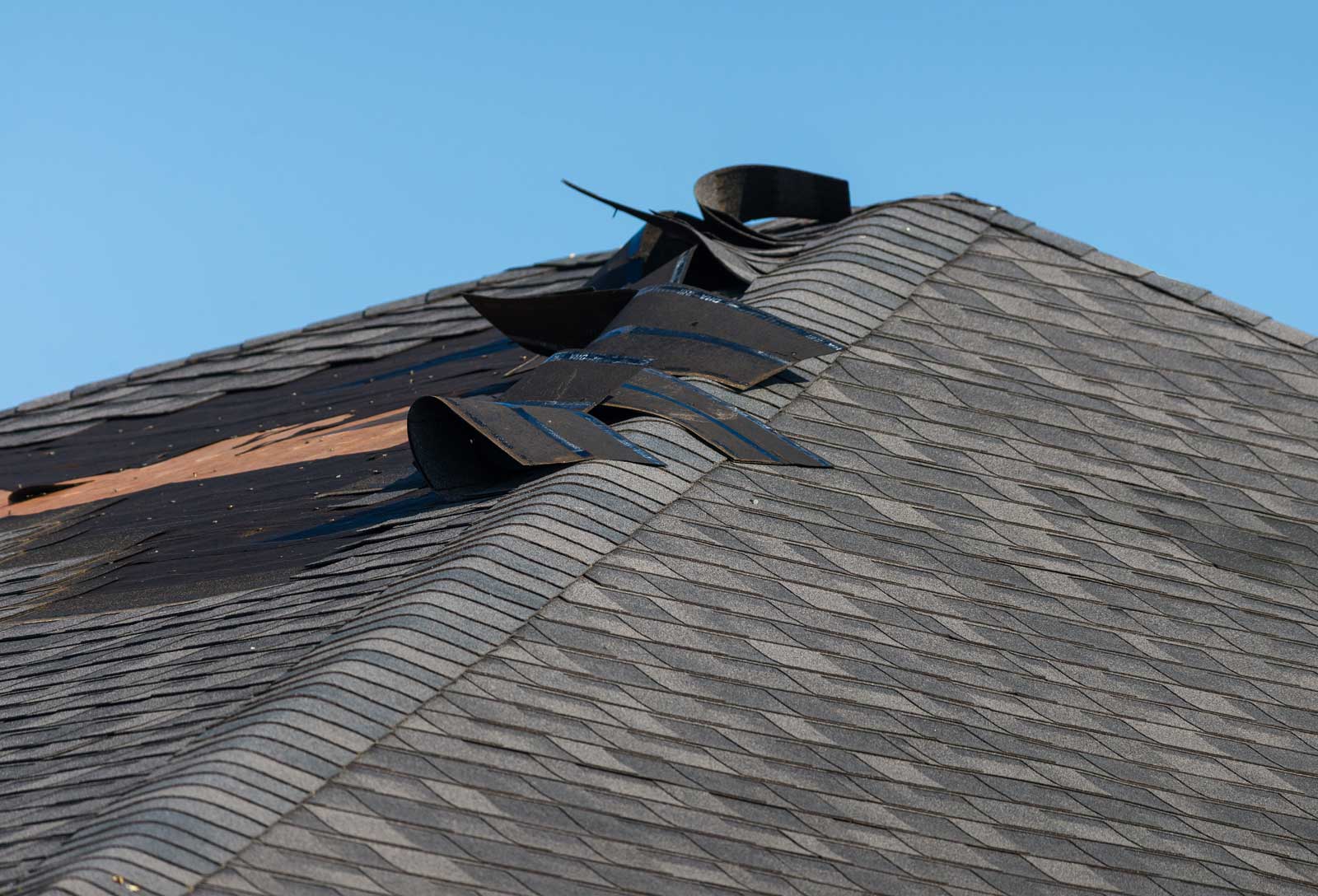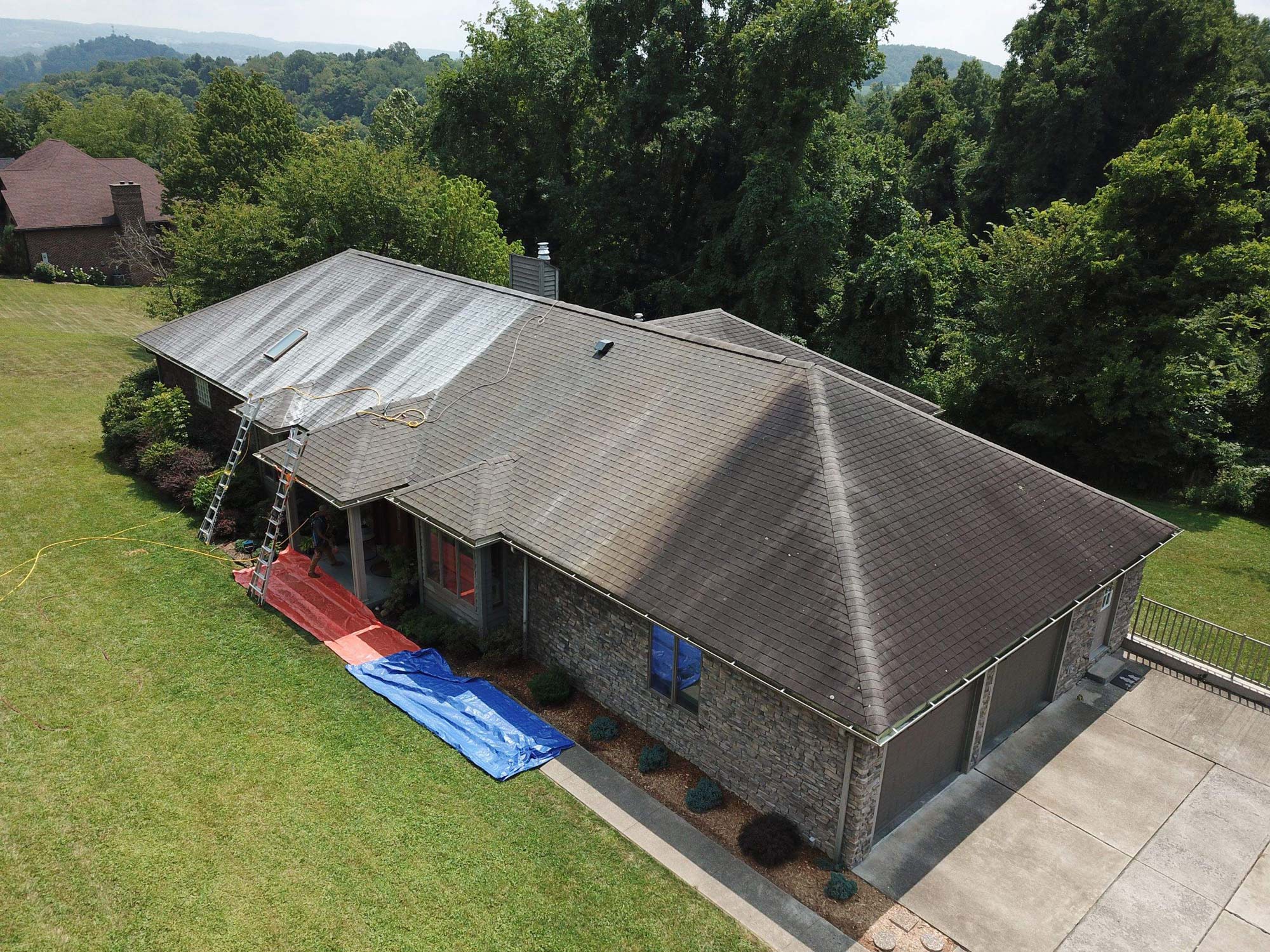Roof inspections are a crucial aspect of home maintenance that often goes overlooked. However, the significance of regular roof inspections must be balanced. They help identify potential issues before they escalate into significant problems and extend the lifespan of your roof, ensuring your home remains safe and secure.
Understanding Roof Inspections
What is a Roof Inspection?
Inspection involves thoroughly examining your home’s roofing system to assess its condition, identify any damages or potential problems, and recommend necessary repairs or maintenance. This preventative measure is critical to avoiding costly repairs down the line and ensuring the longevity of your roof.
Types of Roof Inspections
Roof inspections can be visual, involving a detailed examination of the roof’s surface, or more technical, utilizing tools and technology such as drones or infrared cameras to assess the roof’s condition without direct contact.
Why Regular Roof Inspections are Crucial
Preventing Costly Repairs
Regular inspections help identify minor issues before they become significant, preventing expensive repairs and extending the roof’s lifespan.
Extending Your Roof’s Lifespan
Routine maintenance and timely repairs, guided by regular inspections, can significantly extend your roof’s lifespan, ensuring it protects your home for years to come.
Safety and Protection
A well-maintained roof ensures the safety of your home’s occupants by protecting against weather elements and preventing water damage, which can lead to mold and structural issues.
Insurance and Warranty Compliance
Many insurance policies and roofing warranties require regular inspections to remain valid, making them essential for compliance and ensuring coverage.
When to Schedule a Roof Inspection
Seasonal Considerations
It’s advisable to schedule inspections before and after severe weather seasons to prepare the roof for upcoming conditions and assess any damage from past seasons.
After Extreme Weather Events
Following significant weather events like storms, hail, or heavy snowfall, it’s crucial to inspect your roof for damages to address any issues promptly.
Before Buying or Selling a Home
A roof inspection is a critical part of the home-buying or selling process, providing peace of mind to buyers and value to sellers.
What Inspectors Look For
Structural Integrity
Inspectors assess the roof structure for signs of sagging, uneven roof planes, and the condition of soffits and fascia.
Material Condition
The condition of roofing materials, including shingles, tiles, or metal panels, is closely examined for signs of wear, damage, or aging.
Interior Damages
Inspectors also look for signs of water damage or leaks inside the home, which can indicate roofing issues.
Quality and Installation Errors
Poor craftsmanship and installation errors can lead to premature roof failures, making them a focus area during inspections.
DIY Roof Inspection Tips
Safety First: Precautions to Take
If you choose to inspect your roof, prioritize safety by using a sturdy ladder, wearing appropriate footwear, and never walking on the roof if unnecessary.
Primary Signs of Wear and Damage
Look for missing, cracked, or curled shingles, signs of water damage, and blocked gutters as indicators of potential problems.
The Professional Inspection Process
What to Expect During a Professional Roof Inspection
A professional inspection will be more thorough, often including assessing ventilation systems, examining flashings, and ensuring the roof’s integrity.
How Often to Conduct Professional Inspections
It’s recommended to have your roof professionally inspected at least once every two years or annually if you live in an area prone to severe weather.
The Cost of Neglecting Roof Inspections
Short-term Savings vs. Long-term Costs
Neglecting roof inspections can lead to undetected damage, resulting in higher repair costs, potential home damage, and even roof replacement.
Real-Life Examples of Costly Neglect
Many homeowners have faced expensive repairs or replacements due to neglected maintenance, underscoring the importance of regular inspections.
Choosing the Right Roof Inspection Service
Credentials and Experience
When selecting a roof inspection service, look for licensed, insured professionals with a solid track record and positive reviews.
RAW Roofing holds the Master Elite GAF certification and can provide you with a roof inspection at no cost.
What to Ask Before Hiring
Inquire about their experience, the scope of the inspection, and what the process entails to ensure you’re getting a comprehensive service.
Roof Inspection and Home Value
Impact on Property Value
Regular roof inspections and maintenance can significantly enhance your home’s value, making it more attractive to potential buyers.
Attracting Potential Buyers
A well-maintained roof is a crucial selling point, signaling buyers that the home has been appropriately cared for and expediting the selling process.
Innovations in Roof Inspection
Drones and Technology in Roof Inspections
Using drones and advanced technology for roof inspections allows for safer, more efficient assessments, providing detailed views of hard-to-reach areas.
The Future of Roof Inspections
Technological advancements make roof inspections more accessible and thorough, promising better maintenance and longer-lasting roofs.
FAQs
What is the best time of year for a roof inspection?
The best time of year for a roof inspection is spring and fall. Spring inspections help identify any damage caused by winter weather, while fall inspections prepare your roof for the potentially harsh conditions of the upcoming winter. However, regardless of the season, you should consider an inspection after significant weather events, such as storms or heavy snowfall.
Can I inspect my roof myself?
Yes, homeowners can perform essential roof inspections by looking for visible signs of damage, such as missing or damaged shingles, leaks, or clogged gutters. However, for a comprehensive inspection that includes checking for structural issues, ventilation problems, and other less obvious signs of wear and tear, hiring a professional roof inspector is recommended. They have the expertise and equipment to assess the condition of your roof safely and effectively.
How long does a professional roof inspection take?
The duration of a professional roof inspection can vary depending on the size and complexity of the roof, but it typically takes between 1 to 2 hours. Larger homes or roofs with more complex designs may require additional time for a thorough evaluation.
What are the common signs that my roof needs an inspection?
Common signs that indicate your roof may need an inspection include:
- Missing, cracked, or curling shingles
- Signs of water damage or leaks inside your home
- Excessive granule loss from asphalt shingles
- Sagging roof deck
- Visible signs of algae growth or moss
- Damaged or missing flashing around chimneys, vents, and skylights
How does a roof inspection affect my insurance?
Regular roof inspections can positively affect your homeowners’ insurance in several ways. Firstly, they can prevent minor issues from becoming major problems that could lead to expensive claims. Additionally, some insurance companies may offer lower premiums or discounts for regularly maintained homes, including the roof. However, if an inspection reveals significant damage or wear, performing repairs to comply with your insurance policy terms may be necessary.
What should I do if my roof fails an inspection?
If your roof fails an inspection, the first step is to discuss the findings with the inspector to understand the extent of the damage or wear. The inspector can provide recommendations for repairs or, in some cases, replacement. Getting multiple quotes from licensed and insured roofing contractors is crucial to ensure you’re receiving a fair price for the necessary work. Addressing the issues promptly can prevent further damage to your home and potentially save you money in the long run.
Remember, regular maintenance and timely repairs, as guided by professional roof inspections, are vital in ensuring the longevity and safety of your roof.
Conclusion
The importance of regular roof inspections cannot be overstated. They are a critical component of home maintenance, ensuring your roofing system’s safety, integrity, and longevity.
By investing in regular inspections, homeowners can prevent costly repairs, extend the lifespan of their roofs, and maintain their home’s value. Remember, a well-maintained roof is not just about protecting your home today; it’s about ensuring its safety and value for the future. Contact RAW Roofing today to book your free roof inspection.
